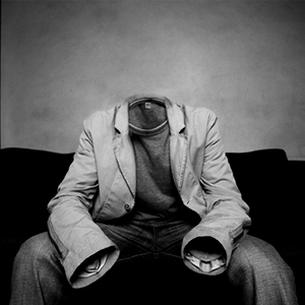The Invisible Man

In the Invisible Man the main character is never given a name. Instead he is left as an open book with an every changing identity. Throughout the novel the identity of the Invisible Man takes shape and falls apart multiple times, from him becoming a college student, to trying to take on the identity of someone else when he disguises himself as Rinehart. As the Invisible Man transitions from one character to the next many of his viewpoints on the world around him change, but one aspects remains constant. The Invisible Man never takes responsibility for his actions, yet he retains a sense of social responsibility to the world around him. The conflict that is created between the character's inability to take responsibility for himself and his desire to try and take on the responsibility to change the world is a very postmodern issue in itself. It establishes a lack of knowledge or truth in who he his, while exploring the role of freedom with his influence over society.
The Invisible Man spends the entire novel in a strictly postmodern mind set. He is living with no established identity or personal responsibility; he lives entirely for his society. Some example of this are how he gives speeches for the brotherhood about whatever they ask him to, and how when he is asked by Mr. Norton to go off campus grounds and then to talk to Trueblood, he does so without ever thinking of the personal consequences and how they could affect him. The best example of the Invisible Man's opinion on social responsibility is during the Battle Royale scene when he is giving his speech. During this speech he refers to the social responsibility of his generation, saying, "'To those of my race who depend upon bettering their condition in a foreign land...'Cast down you buckets where you are'-cast it down in making friends in very manly way'". In this quote he is calling upon his race to better their relations with the white men, saying that it is their social responsibility. This reinforces the idea that he lacks any real identity, and can only identify with the whole. At the end of the novel, though, the Invisible Man begins to actually take responsibility for his own actions when he decides to start following his grandfather's advice. This rebellion from the brotherhood symbolizes his realization that he needs to take responsibility for himself. When this event occurs it is also a shift in the character's viewpoint from a postmodern approach, where his identity is less characteristic to a modern viewpoint. The modern view point that is taken at the end of the novel is one where individualism becomes an important part of the character's life, and he is finally able to actually form an identity for himself that was not crafted from the inner workings of any particular organization.
The Invisible Man spends the entire novel in a strictly postmodern mind set. He is living with no established identity or personal responsibility; he lives entirely for his society. Some example of this are how he gives speeches for the brotherhood about whatever they ask him to, and how when he is asked by Mr. Norton to go off campus grounds and then to talk to Trueblood, he does so without ever thinking of the personal consequences and how they could affect him. The best example of the Invisible Man's opinion on social responsibility is during the Battle Royale scene when he is giving his speech. During this speech he refers to the social responsibility of his generation, saying, "'To those of my race who depend upon bettering their condition in a foreign land...'Cast down you buckets where you are'-cast it down in making friends in very manly way'". In this quote he is calling upon his race to better their relations with the white men, saying that it is their social responsibility. This reinforces the idea that he lacks any real identity, and can only identify with the whole. At the end of the novel, though, the Invisible Man begins to actually take responsibility for his own actions when he decides to start following his grandfather's advice. This rebellion from the brotherhood symbolizes his realization that he needs to take responsibility for himself. When this event occurs it is also a shift in the character's viewpoint from a postmodern approach, where his identity is less characteristic to a modern viewpoint. The modern view point that is taken at the end of the novel is one where individualism becomes an important part of the character's life, and he is finally able to actually form an identity for himself that was not crafted from the inner workings of any particular organization.
